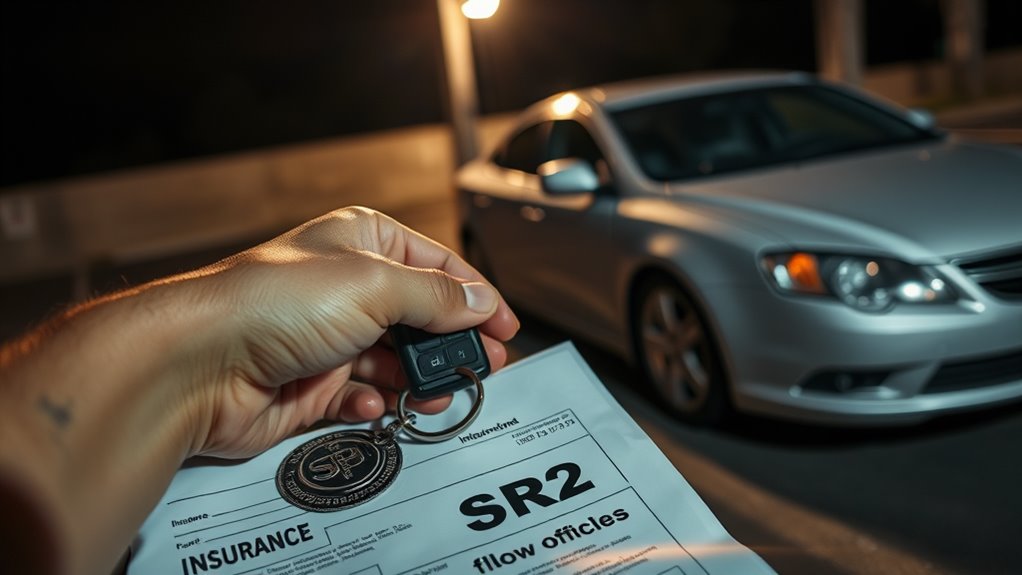Eligibility for SR22 Insurance for High-Risk Drivers
If you've faced serious traffic violations, you might find yourself categorized as a high-risk driver, which often necessitates SR22 insurance. This requirement typically arises from offenses like DUIs or reckless driving that lead to license suspensions. Understanding the specific criteria in your state can be complex, but it's essential for maintaining your driving privileges. What are the implications of these requirements, and how can you navigate this process effectively?
When it comes to securing SR22 insurance, understanding your eligibility is important, especially if you've faced serious traffic violations or license suspensions. If you're categorized as a high-risk driver, chances are you might need to file for an SR22 to regain your driving privileges. This requirement often arises after serious infractions like DUIs, reckless driving, or being involved in multiple accidents. Each of these violations can necessitate the filing of an SR22, which serves as proof of financial responsibility to your state's Department of Motor Vehicles (DMV).
Your eligibility for SR22 insurance is largely determined by your driving history. If you've been convicted of serious traffic offenses or have faced license suspensions, you'll most likely need an SR22. Additionally, if you've been in an accident while uninsured, the state will typically require you to obtain this form of insurance. An SR-22 ensures adequate auto insurance coverage as required by state laws, which is crucial for high-risk drivers. Furthermore, many high-risk drivers can find affordable SR-22 insurance options tailored to their needs.
Your driving history greatly influences your eligibility for SR22 insurance, especially after serious offenses or license suspensions.
It's essential to understand that having multiple violations can further cement your status as a high-risk driver, making it even more critical to obtain an SR22.
Different states have varying requirements regarding SR22 insurance. For instance, in Ohio, you must meet minimum liability coverage requirements and file an SR22 if you've had suspensions due to non-compliance. On the other hand, states like Florida and Virginia utilize an FR-44 for DUI offenses, which comes with even higher liability limits.
Understanding the specific requirements in your state is important, as they'll dictate the type of coverage you need and the minimum limits you'll have to meet. In Ohio, for example, you'd need coverage of at least $25,000 for bodily injury per person, $50,000 for bodily injury per accident, and $25,000 for property damage.
When it comes to securing an SR22, not all insurance providers offer this service. You may need to switch to a provider that specializes in high-risk insurance policies.
Remember, your insurer will likely adjust your policy to meet your state's minimum liability requirements, which can include additional fees and increased premiums. Expect to pay anywhere from $300 to $800 more annually compared to standard rates, with some increases ranging from 9 to 40 percent due to your high-risk status.
In addition to the potential for increased premiums, the SR22 filing process itself may incur fees—typically around $25. You'll need to maintain continuous coverage, as insurers must notify the DMV if your coverage lapses.
SR22s usually remain in effect for three to five years, depending on your state and the nature of your violations.
Conclusion
In conclusion, steering through the requirements for SR22 insurance as a high-risk driver involves understanding your unique situation. If you've faced serious violations, if your license has been suspended, if you've struggled with financial responsibility, then SR22 insurance is likely essential for you. Staying informed and proactive can help you regain your driving privileges and demonstrate your commitment to safe driving. Remember, addressing these issues now can pave the way for a more secure and responsible future on the road.
